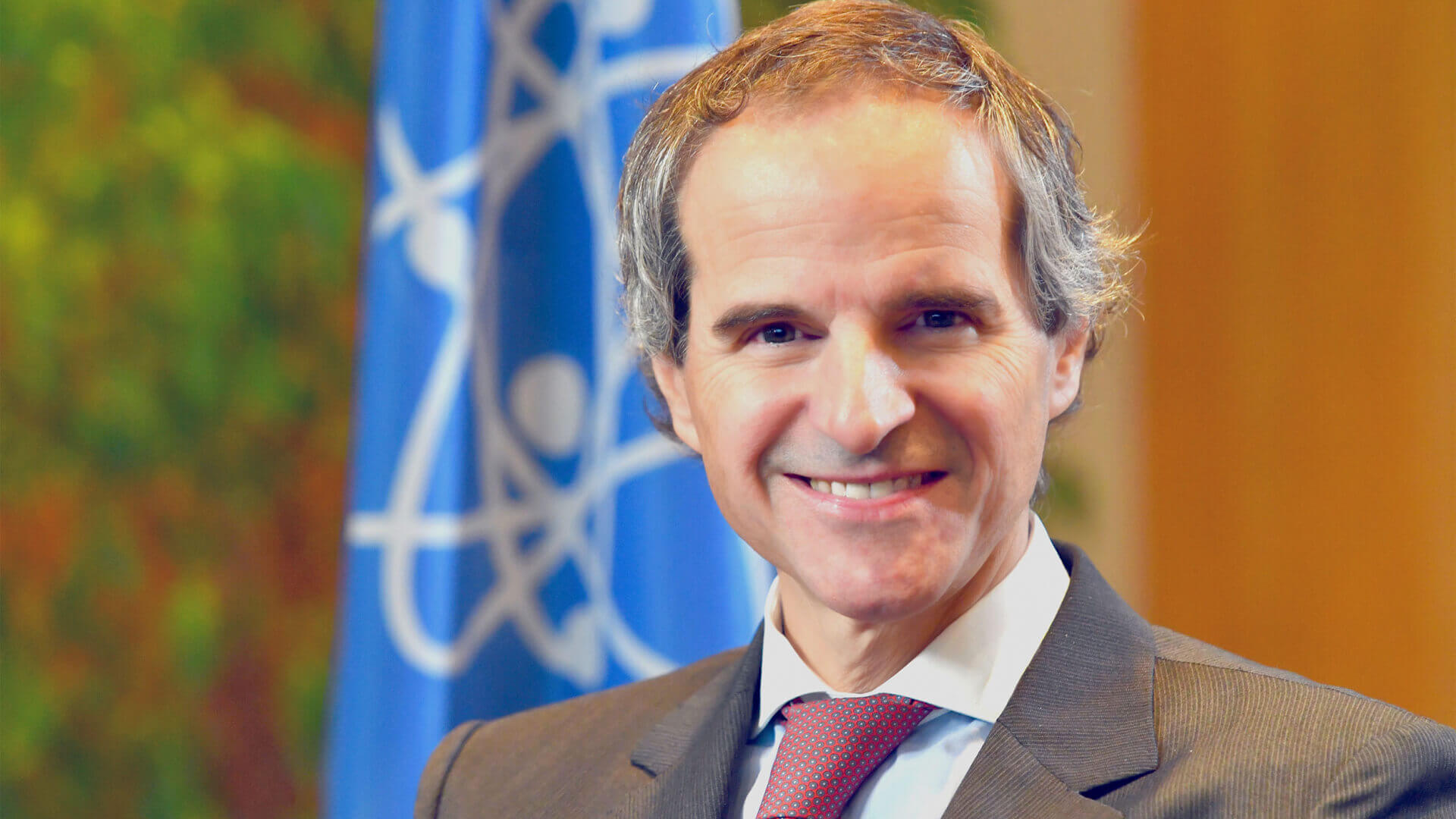International Atomic Energy Agency (IAEA) Director-General Rafael Grossi accused Iran of withholding information regarding the storage of nuclear material at several locations. His remarks come as Western countries consider censuring Tehran for its lack of transparency and stalling negotiations.
“Iran has not provided explanations that are technically credible in relation to the Agency’s findings at three undeclared locations in Iran,” said Grossi, referring to a previous IAEA report released in March, which concluded that Tehran’s stockpile of enriched uranium has increased by almost 15 times the level set by the 2015 nuclear deal, officially known as the Joint Comprehensive Plan of Action (JCPOA).
More on safeguards probe: "I hope that as a result of the deliberations at the Board this week, we will come out of this with a sense of commitment to solve this once and for all." 2/
— Stephanie Liechtenstein (@StLiechtenstein) June 6, 2022
Furthermore, Grossi noted that Iran has not informed the nuclear watchdog about the locations of nuclear material and equipment contaminated with uranium traces. He warned that unless Iran provides “technically credible explanations” for the presence of uranium particles, the IAEA cannot confirm the veracity of Tehran’s claims that it is complying with safeguard rules.
“In order for the Agency to be in a position to provide assurance that Iran’s nuclear programme is exclusively peaceful, the Agency remains ready to re-engage without delay with Iran to resolve these matters,” he stressed.
Iran criticised the statements made by Grossi and said it will not accept any Western-led effort to issue a resolution against its nuclear programme. Foreign Ministry spokesperson Saeed Khatibzadeh said that Tehran has also rejected the finding of the report released by the IAEA in March.
The report claims that Iran’s estimated stockpile stood at 3197.1 kilogrammes, an increase of 707.4 kg since the previous quarterly report in November. It also states that Iran has around 33.2 kilogrammes of uranium enriched up to 60% fissile purity, up 15.5 kilogrammes since the last report.
The findings of the report have prompted the United States (US), the United Kingdom (UK), France, and Germany to draft a resolution censuring Iran for its decision to accelerate its nuclear programme. The West has also called on the IAEA to adopt the resolution during its ongoing meeting. The IAEA is currently holding its annual board of governors’ summit in Vienna and reports have suggested that the agency could adopt the resolution.
Exchanged views w/ @JosepBorrellF abt Vienna talks on removing sanctions & how to proceed.
— H.Amirabdollahian امیرعبداللهیان (@Amirabdolahian) June 5, 2022
Those who push for anti-Iran resolution at IAEA will be responsible for all the consequences.
We welcome a good, strong & lasting agreement. It's within reach if US/E3 are realistic.
Iran has warned the body that adopting an “anti-Iran” resolution would be met with serious consequences. “Those who push for an anti-Iran resolution at IAEA will be responsible for all the consequences,” Iranian Foreign Minister Hossein Amir Abdollahian said on Monday.
Last week, Khatibzadeh said the IAEA will lose its credibility if it adopts the resolution and blamed the organisation for its silence on “Israel’s clandestine nuclear weapons programme.”
An Israeli official said on Monday that Iran is under increasing diplomatic pressure to return to the negotiating table. “Diplomatic pressure hasn’t been fully and seriously applied since the talks about the return to the JCPOA began,” he said, adding that by adopting the resolution, the IAEA would force Tehran to reconsider its position.
Moreover, last week, Grossi met with Israeli Prime Minister Naftali Bennett, who expressed Israel’s “deep concerns” over Iran’s nuclear activities and urged Grossi to deliver a “clear and unequivocal message to Iran” in Vienna.
Israeli regime, as the world's #1 JCPOA hater happens to be NPT-denier & the only nuke-possessor of the MENA region. We know this. The world knows this.
— Saeed Khatibzadeh | سعید خطیبزاده (@SKhatibzadeh) June 1, 2022
Time for E3/US to stop pretending to be asleep.
They can pursue diplomacy—or pursue the opposite. We're ready for both.
Iranian state-owned news network Press TV reported that Grossi’s visit to Israel signalled that the IAEA has been colluding with Israel. “Iran has on many previous occasions cautioned the IAEA against allowing the Israeli regime to influence its independent mandate and decision-making,” the report said.
While Iran continues to insist that its nuclear programme is peaceful, the IAEA has released several reports claiming that Tehran has increased its nuclear activities and has enough highly enriched uranium to manufacture a nuclear weapon. Moreover, talks that began last April in Vienna to revive the JCPOA are currently stalled over certain Iranian demands, including removing US-imposed sanctions on the Islamic Revolutionary Guard Corps (IRGC), which the West has refused to accede to.

